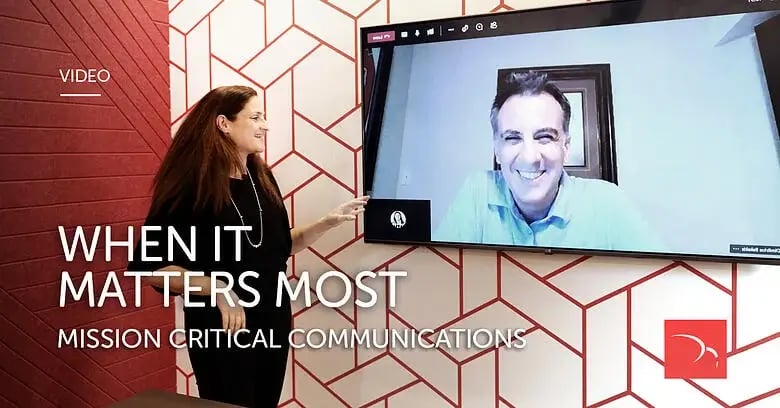Critical infrastructure providers play a vital role in our society. Jimmy Bakakis, Sales Director Critical Infrastructure, talks to Dr. Dahlit Brin about what exactly these critical infrastructure providers are and do, and why modern communication technology is critical to their operations.
Full interview transcript:
Welcome to The Backhaul Lounge. I'm Dahlit Brin, and today I'm going to talk to you about critical infrastructure and why communication is so important to them. To help me out, I am joined by Jimmy Bakakis, who's our Director of Critical Infrastructure. Hi, Jimmy. Thank you so much for joining us today.
Hi, Dahlit. It's a pleasure to be here with you today.
Wonderful, Jimmy. My first question is, what is critical infrastructure?
Well Dahlit, that depends on whose point of view. So, critical infrastructure can be almost anything, depending on who it affects. What I like to consider is that it is a group of assets, which could be buildings, equipment, people, or different locations that are basically essential to the functioning of society. So kind of, in essence, without these assets, there'd be some sort of societal impact or economic impact. We think of industries like government, public safety, utilities, energy. These are all considered critical infrastructure industries because they provide a societal benefit to make our lives what they are today.
Ok, so in my own words, those are organizations and service providers that bring essential, critical services to make sure that society is run safely and as pleasant as we would like it. So that's clear, now. Thank you. But what does communication have to do with it? And why is it so important that they have good communication?
Well, as the need to optimize and make operations more efficient grows, both of these for economic and environmental reasons, technology and devices, they become more and more important to all these industries. So especially in areas where critical infrastructure has an impact on society, the ability for these technologies and devices to communicate with one another, or back to some central hub, is extremely critical. For example, when you think of public safety, the ability to effectively monitor traffic people, infrastructure or resources to improve the safety and security of its residents, and to also give authorities the ability to react, kind of decisively and fast, is critical.
So, all this requires a variety of applications and devices to run over a highly robust, highly reliable, low latency network. So getting this, real-time information to those that need it to kind of make these critical decisions could be the difference in handling a situation peacefully, efficiently and not having to escalate to an emergency on hand.
All right. OK. And yes, as you mentioned, there are so many examples. I can think about the health care, better communication could also be the difference between life and death, maybe. So in my own words, we've learned that critical infrastructure providers give us services that help us run society in a peaceful, healthy and pleasant manner and the way that we all would, you know, want to live. And communication is important because it delivers mission-critical information, just like you mentioned. And this is just a first glimpse. I'm very, very curious to hear much more about it. You know what challenges communication-wise these service providers are facing and also what we at Ceragon, of course, can do. So you kindly agreed to be back and we will speak about all these fascinating questions very soon. So, Jimmy, for now, thank you so much for joining us in the Backhaul Lounge.
Dahlit, thank you very much for having me. And look forward to talk to you again soon.
And we will do so very, very soon. This is the Backhaul Lounge. I'm Dahlit Bring. I'm inviting you to follow us on Facebook, LinkedIn and Twitter. And I'll see you soon.
Want to know more?


